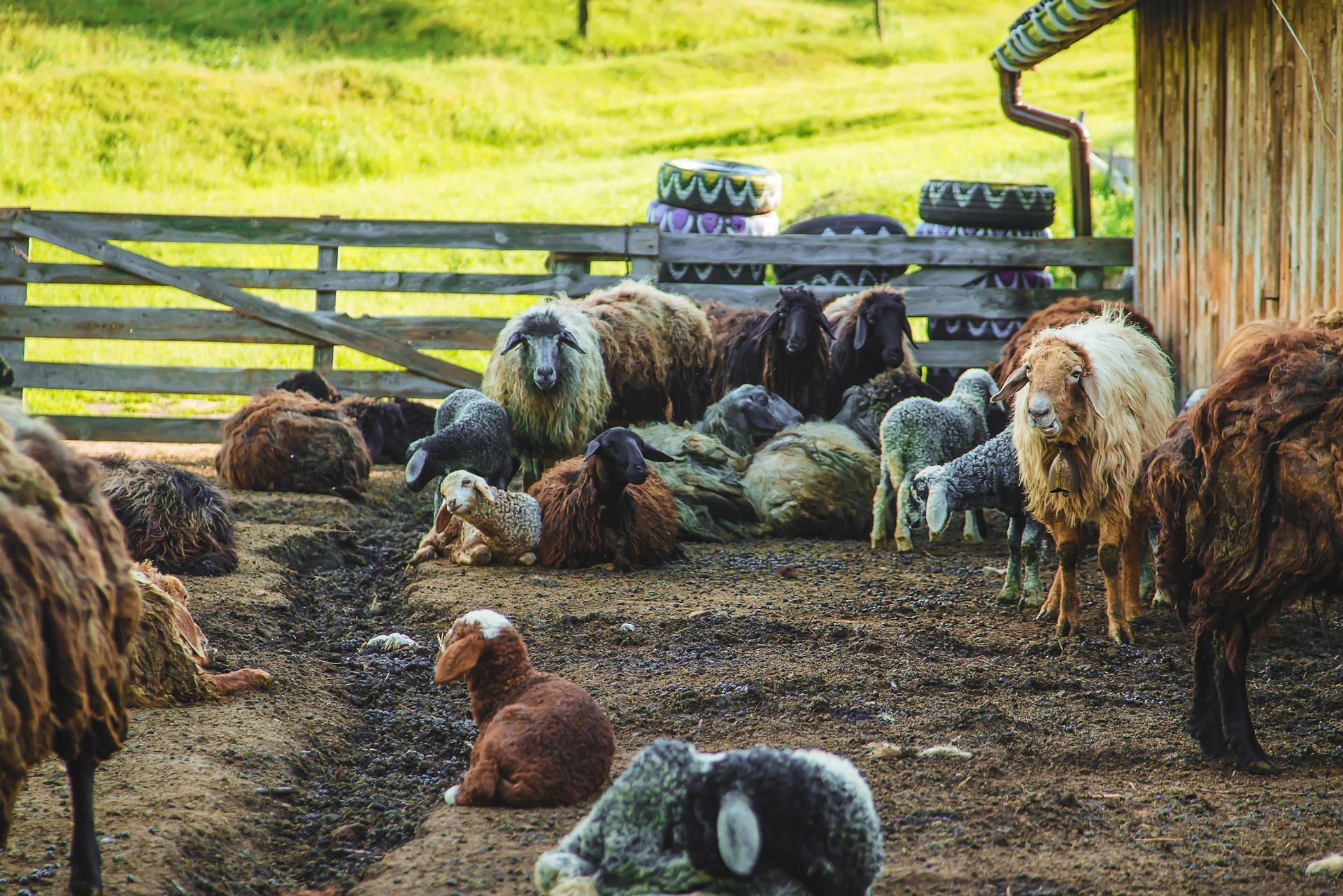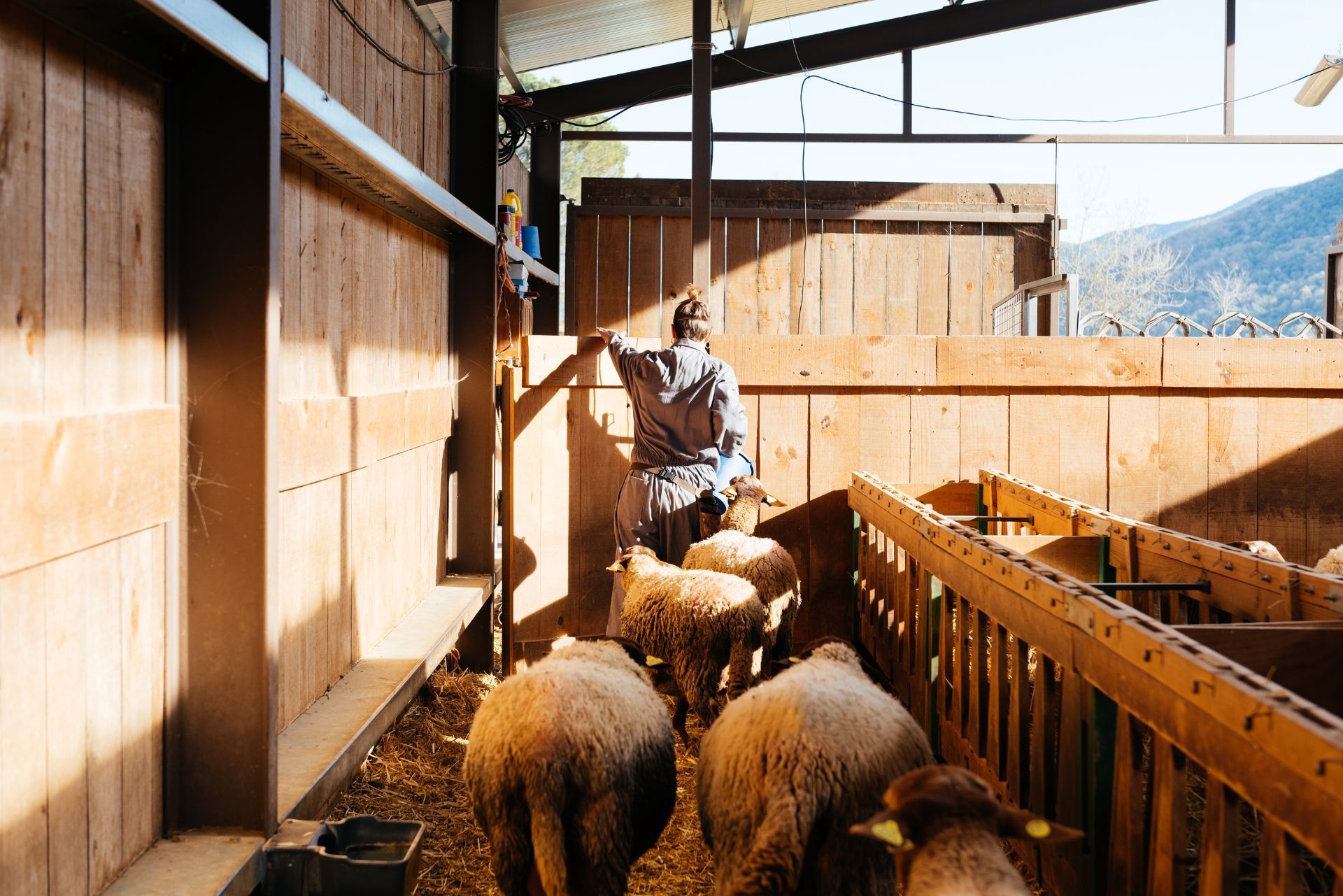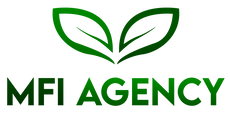
Top 3 Recommended Policies

Operating a sheep and goat farm can be a rewarding venture, but it also comes with its share of risks. From natural disasters to health issues affecting livestock, the potential for loss is significant. This is where sheep and goat farm insurance comes into play. This ultimate guide will delve into the various aspects of insurance tailored specifically for sheep and goat farmers, helping you understand the importance of coverage, the types of policies available, and how to choose the right one for your needs.
Understanding the Importance of Farm Insurance
Farm insurance is not just an optional expense; it is a vital component of risk management for any agricultural operation. For sheep and goat farmers, having the right insurance can mean the difference between financial stability and devastating losses. With the unpredictable nature of farming, from fluctuating market prices to natural disasters, insurance serves as a critical buffer that allows farmers to focus on their operations without the constant worry of unforeseen events derailing their livelihoods.
Protecting Your Livestock
Livestock is often the most valuable asset on a farm. Sheep and goats can be susceptible to various diseases, accidents, and even theft. Insurance provides a safety net, ensuring that farmers can recover financially if something goes wrong. Policies typically cover losses due to death, injury, or theft of livestock, allowing farmers to replace their animals and continue operations. Moreover, many insurance providers offer specialized coverage options tailored to specific breeds or farming practices, enabling farmers to select a plan that best fits their unique needs and circumstances. This tailored approach not only enhances protection but also fosters peace of mind, knowing that their investment in livestock is safeguarded against a range of potential threats.
Coverage for Farm Structures and Equipment
In addition to livestock, sheep and goat farms require various structures and equipment, such as barns, fencing, and feeding systems. These assets can be costly to repair or replace in the event of damage from storms, fire, or vandalism. Farm insurance can cover these structures, helping farmers avoid significant out-of-pocket expenses. Furthermore, many policies also extend to cover machinery and tools essential for daily operations, such as tractors and shearing equipment. This comprehensive coverage ensures that farmers can maintain their productivity even after a loss, allowing them to quickly resume their work without the burden of financial strain. Additionally, some insurers offer risk management resources and consultations to help farmers implement preventative measures, further reducing the likelihood of claims and enhancing overall farm safety.
Liability Protection
Farmers can be held liable for accidents that occur on their property, whether involving visitors, workers, or even neighboring properties. Liability insurance is crucial in protecting against legal claims that could arise from injuries or property damage. This type of coverage can safeguard a farmer’s financial future, ensuring they are not left vulnerable to costly lawsuits. In today's litigious society, having robust liability coverage is more important than ever, as even minor incidents can lead to significant legal expenses. Additionally, some policies may include coverage for product liability, which is particularly relevant for farmers who sell their products directly to consumers. This added layer of protection not only secures the farmer's assets but also enhances their reputation in the marketplace, reassuring customers that they are committed to safety and quality in their operations.
Types of Insurance Coverage for Sheep and Goat Farms
There are several types of insurance coverage available specifically for sheep and goat farms. Understanding these options is essential for selecting the right policy that meets your unique needs.
Livestock Insurance
Livestock insurance is designed to cover the loss of sheep and goats due to various circumstances. This may include coverage for death caused by accidents, illness, or even natural disasters. Some policies may also offer coverage for loss due to theft or straying, providing peace of mind for farmers concerned about the safety of their animals. Additionally, some insurance providers offer specialized coverage for specific breeds or production types, which can be beneficial for farmers who focus on high-value livestock or niche markets. This tailored approach ensures that farmers are adequately compensated for their unique investments in breeding and raising their animals.
Farm Property Insurance
This type of insurance covers the physical assets of the farm, including buildings, equipment, and machinery. It protects against damage from fire, storms, and other perils. For sheep and goat farmers, ensuring that barns, feed storage, and fencing are covered is crucial for maintaining the operational integrity of the farm. Furthermore, many policies can be customized to include coverage for additional structures such as shearing sheds or processing facilities, which are essential for value-added operations. By safeguarding these assets, farmers can ensure that their operations can quickly recover from unforeseen events, minimizing downtime and financial loss.
Farm Liability Insurance
Liability insurance is essential for protecting against claims related to injuries or damages that occur on the farm. This can include coverage for accidents involving visitors, workers, or even damage to neighboring properties. Having adequate liability coverage is vital for safeguarding a farmer’s financial well-being. Moreover, some policies extend to cover product liability, which is particularly important for farmers who sell sheep or goat products such as meat, wool, or dairy. With the increasing focus on food safety and animal welfare, having comprehensive liability coverage can help farmers navigate potential legal challenges while maintaining consumer trust in their products.

Factors to Consider When Choosing Insurance
Choosing the right insurance policy for a sheep and goat farm can be a complex process. Several factors should be considered to ensure adequate coverage and affordability.
Farm Size and Scale
The size and scale of the farm play a significant role in determining insurance needs. Larger farms may require more extensive coverage due to the higher value of livestock and assets. Understanding the specific needs based on the scale of operations is crucial for selecting the right policy. Additionally, larger operations may have more employees, which can introduce liability concerns that need to be addressed in the insurance plan. A thorough assessment of all farm operations, including any seasonal fluctuations in livestock numbers or production levels, can help tailor the insurance to better fit the unique circumstances of the farm.
Types of Livestock
Different types of sheep and goats may have varying insurance needs. For example, rare or high-value breeds may require specialized coverage due to their unique characteristics and potential market value. It’s essential to consider the specific breeds and their associated risks when selecting insurance. Furthermore, the age and health of the animals can also influence insurance premiums and coverage options. Younger animals may be more susceptible to certain diseases, while older livestock may have a higher risk of health issues, necessitating a more comprehensive health insurance plan that covers veterinary costs and potential loss of income due to livestock mortality.
Geographic Location
The geographic location of the farm can significantly impact insurance needs. Areas prone to natural disasters such as floods, hurricanes, or wildfires may require additional coverage. Understanding local risks and how they affect insurance options is essential for comprehensive protection. Moreover, local regulations and agricultural practices can also affect insurance requirements. For instance, farms located in regions with strict animal welfare laws may need to ensure that their policies cover compliance with these regulations. Additionally, proximity to urban areas might introduce different risks, such as theft or vandalism, which should also be factored into the insurance decision-making process.
How to Find the Right Insurance Provider
Finding the right insurance provider is just as important as selecting the right policy. A reputable provider can offer tailored solutions and excellent customer service, making the insurance process smoother and more efficient. The right insurance can protect your livelihood, ensuring that you have the support you need in times of crisis, whether it be due to natural disasters, market fluctuations, or unforeseen accidents.
Researching Providers
Start by researching insurance providers that specialize in agricultural insurance. Look for companies with a strong reputation in the industry and positive customer reviews. Consider reaching out to local agricultural organizations for recommendations on reputable providers. Additionally, it can be beneficial to check if the providers are members of professional associations, as this often indicates a commitment to industry standards and best practices. Networking with fellow farmers at local events or agricultural fairs can also yield valuable insights into which providers have a solid track record.
Comparing Quotes
Once you have a list of potential providers, obtain quotes from each. Comparing quotes allows you to understand the coverage options and pricing structures available. Be sure to examine the details of each policy to ensure you are comparing similar coverage levels. Don't hesitate to ask questions about any terms or conditions that seem unclear; a good insurance provider will be more than willing to explain their offerings in detail. Additionally, consider the financial stability of the insurance companies you are evaluating, as this can impact their ability to pay claims in the future.
Reading Customer Reviews
Customer reviews can provide valuable insights into the experiences of other farmers with specific insurance providers. Look for reviews that discuss the claims process, customer service, and overall satisfaction. This information can help guide your decision when selecting an insurer. Pay attention to patterns in the reviews; for instance, if multiple customers mention a provider's quick response time during claims, that could be a significant factor in your decision-making process. Furthermore, consider checking third-party review sites and forums where farmers share their experiences, as these platforms often provide a more comprehensive view of a provider's reputation.
Understanding Policy Terms and Conditions
Before signing any insurance policy, it is crucial to thoroughly understand the terms and conditions. This knowledge can prevent misunderstandings and ensure that you are adequately protected. Insurance policies can often be filled with complex language and legal jargon, making it easy for policyholders to overlook important details. Taking the time to read through the entire document and asking questions can save you from potential pitfalls down the road.
Exclusions and Limitations
Every insurance policy will have exclusions and limitations. These are specific situations or circumstances that are not covered by the policy. Understanding these exclusions is essential to avoid surprises when filing a claim. For example, some policies may not cover losses due to neglect or poor management practices. Additionally, certain natural disasters, like floods or earthquakes, may require separate coverage or endorsements. Knowing what is excluded can help you make informed decisions about additional coverage options that may be necessary to fully protect your assets.
Deductibles and Premiums
Insurance policies often come with deductibles, which is the amount the policyholder must pay out-of-pocket before the insurance kicks in. Higher deductibles typically lead to lower premiums, but it’s essential to choose a deductible that is manageable in the event of a claim. Balancing premiums and deductibles is a critical part of selecting the right insurance. It’s also important to consider how your choice may affect your financial situation in the long run. For instance, if you opt for a high deductible to save on premiums, you should ensure that you have sufficient savings set aside to cover that deductible in case of an emergency.
Claim Process
Understanding the claims process is vital for ensuring a smooth experience when filing a claim. Familiarize yourself with the steps involved, the documentation required, and the timeline for processing claims. A transparent and straightforward claims process can significantly enhance your experience with your insurance provider. Additionally, knowing how to effectively communicate with your insurer can make a significant difference. Keeping detailed records of your interactions, including dates, times, and the names of representatives you speak with, can help streamline the process and provide clarity if any disputes arise. Furthermore, understanding the common reasons claims may be denied can help you prepare your submission more effectively, increasing the likelihood of a successful outcome.
Tips for Reducing Insurance Costs
Insurance can be a significant expense for sheep and goat farmers, but there are several strategies to help reduce costs without sacrificing coverage.
Bundling Policies
Many insurance providers offer discounts for bundling multiple policies, such as combining livestock, property, and liability insurance. Bundling can lead to substantial savings, making it a worthwhile consideration for farmers looking to cut costs. Additionally, by consolidating policies with one insurer, farmers may benefit from a more streamlined claims process and a single point of contact for all their insurance needs. This can save time and reduce the complexity of managing multiple policies, allowing farmers to focus more on their operations rather than administrative tasks.
Implementing Risk Management Practices
Adopting risk management practices can help reduce the likelihood of claims and, in turn, lower insurance premiums. This may include implementing biosecurity measures to prevent disease outbreaks, maintaining proper fencing to prevent livestock from straying, and regularly inspecting farm structures for potential hazards. Furthermore, investing in training for staff on safety protocols and emergency response can significantly mitigate risks. For example, educating workers on proper handling techniques can reduce accidents and injuries, which not only protects the livestock but can also lead to lower premiums over time as the insurer recognizes the reduced risk associated with well-trained personnel.
Regularly Reviewing Coverage
As the farm grows and changes, so too should the insurance coverage. Regularly reviewing and updating policies ensures that coverage remains adequate and reflects the current value of assets. This proactive approach can prevent underinsurance and help maintain reasonable premiums. It’s also beneficial to stay informed about changes in the insurance market or new policy offerings that may better suit evolving farm needs. Engaging with an insurance agent who specializes in agricultural policies can provide valuable insights into potential discounts or coverage options that may have been previously overlooked, ensuring that farmers are not only saving money but also adequately protecting their investments.

Conclusion
Sheep and goat farm insurance is an essential aspect of managing risk in agricultural operations. By understanding the various types of coverage available, considering key factors when choosing a policy, and selecting a reputable provider, farmers can ensure they are adequately protected against potential losses. Additionally, implementing strategies to reduce costs can help maintain financial stability while safeguarding valuable assets.
Ultimately, investing in comprehensive insurance coverage is a crucial step for sheep and goat farmers looking to secure their livelihoods and ensure the long-term success of their operations. With the right insurance in place, farmers can focus on what they do best—raising healthy, productive livestock and contributing to the agricultural community.
Contact Us

